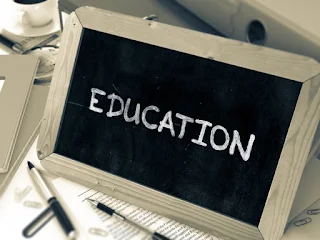Learning preferences can vary among individuals. Some people thrive in a structured learning environment with a teacher or instructor, while others prefer to learn on their own. Here are some characteristics of each approach:
Learning with a teacher:
Guidance and expertise: A teacher can provide guidance,
answer questions, and offer explanations to help you understand complex
concepts.
Interactive learning: Teachers can engage students in
discussions, activities, and group work, fostering an interactive learning
environment.
Accountability: Having a teacher can help maintain
accountability and provide regular assessments and feedback on your progress.
Personalized instruction: A teacher can adapt their teaching
style to cater to individual needs and address specific learning challenges.
Structured curriculum: Teachers often follow a structured
curriculum that ensures a comprehensive coverage of the subject matter,
ensuring that you receive a well-rounded education.
Classroom interaction: Being in a classroom with fellow
students allows for peer-to-peer interaction, collaboration, and the
opportunity to learn from one another's perspectives and experiences.
Immediate clarification: Having a teacher present enables you
to seek immediate clarification on any confusing or challenging topics,
reducing the chances of misunderstanding or misconceptions.
Motivation and support: A teacher can provide motivation,
encouragement, and support, which can be particularly helpful during difficult
or challenging learning phases.
Learning on your own:
Self-paced learning: Learning independently allows you to
set your own pace and explore topics in-depth without time constraints.
Flexibility: You have the freedom to choose when
and where to learn, tailoring your study schedule to your preferences and
lifestyle.
Autonomy: Self-directed learning encourages
critical thinking, problem-solving skills, and the ability to take initiative
in seeking resources.
Personal exploration: When learning on your own, you have
the opportunity to explore topics of interest and focus on areas that align
with your goals.
Independence and
self-reliance:
Learning independently fosters a sense of independence and self-reliance, as
you take responsibility for your own learning journey.
Customization and
personalization:
You have the freedom to tailor your learning materials, resources, and methods
to suit your individual learning style and preferences.
Deep exploration and
specialization:
Learning on your own allows you to delve deeply into specific areas of
interest, pursue niche subjects, or specialize in a particular domain.
Continual learning and
lifelong skills:
By developing self-directed learning skills, you equip yourself with the
ability to continue learning throughout your life, adapting to new challenges
and acquiring new knowledge and skills.
In reality, a
combination of both approaches can often be beneficial. For example, you might
prefer to learn independently to explore new concepts and develop a
foundational understanding, and then seek guidance from a teacher or mentor for
more complex topics or to clarify any doubts.
Ultimately,
the most effective learning approach varies from person to person. It's
important to understand your own preferences, strengths, and learning goals to
determine which method works best for you in different situations.
Remember that
these points are general observations, and individual preferences and
circumstances can greatly influence the effectiveness of each learning
approach. It's beneficial to experiment with different methods, reflect on your
learning experiences, and adapt your approach based on what works best for you.







0 Comments